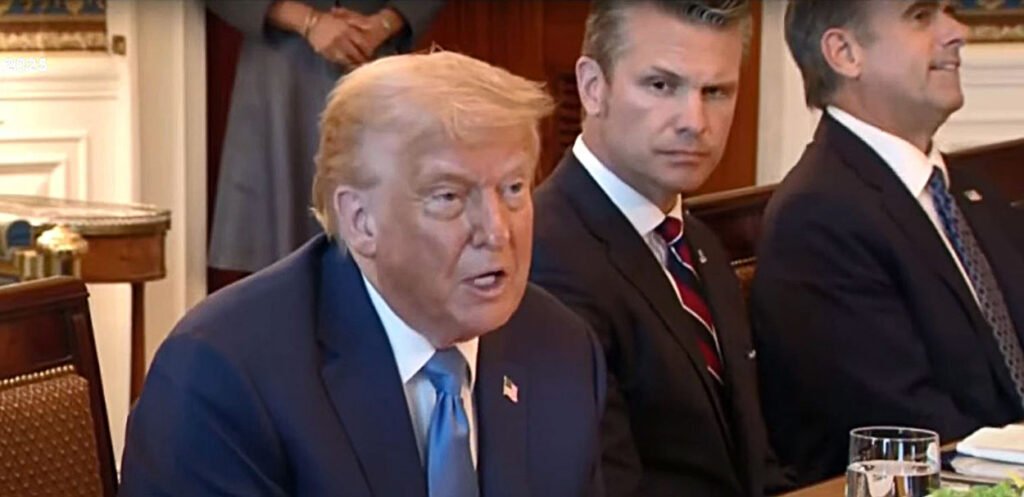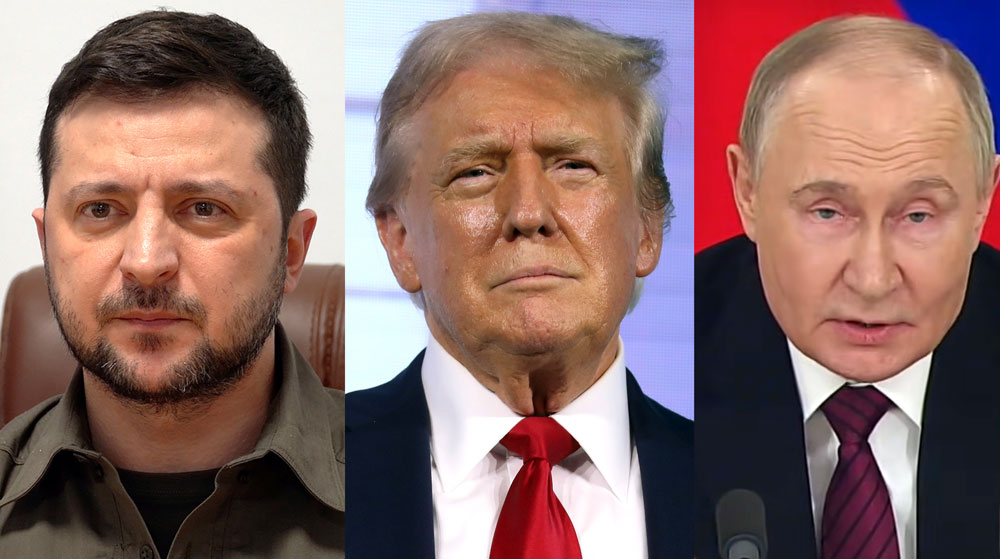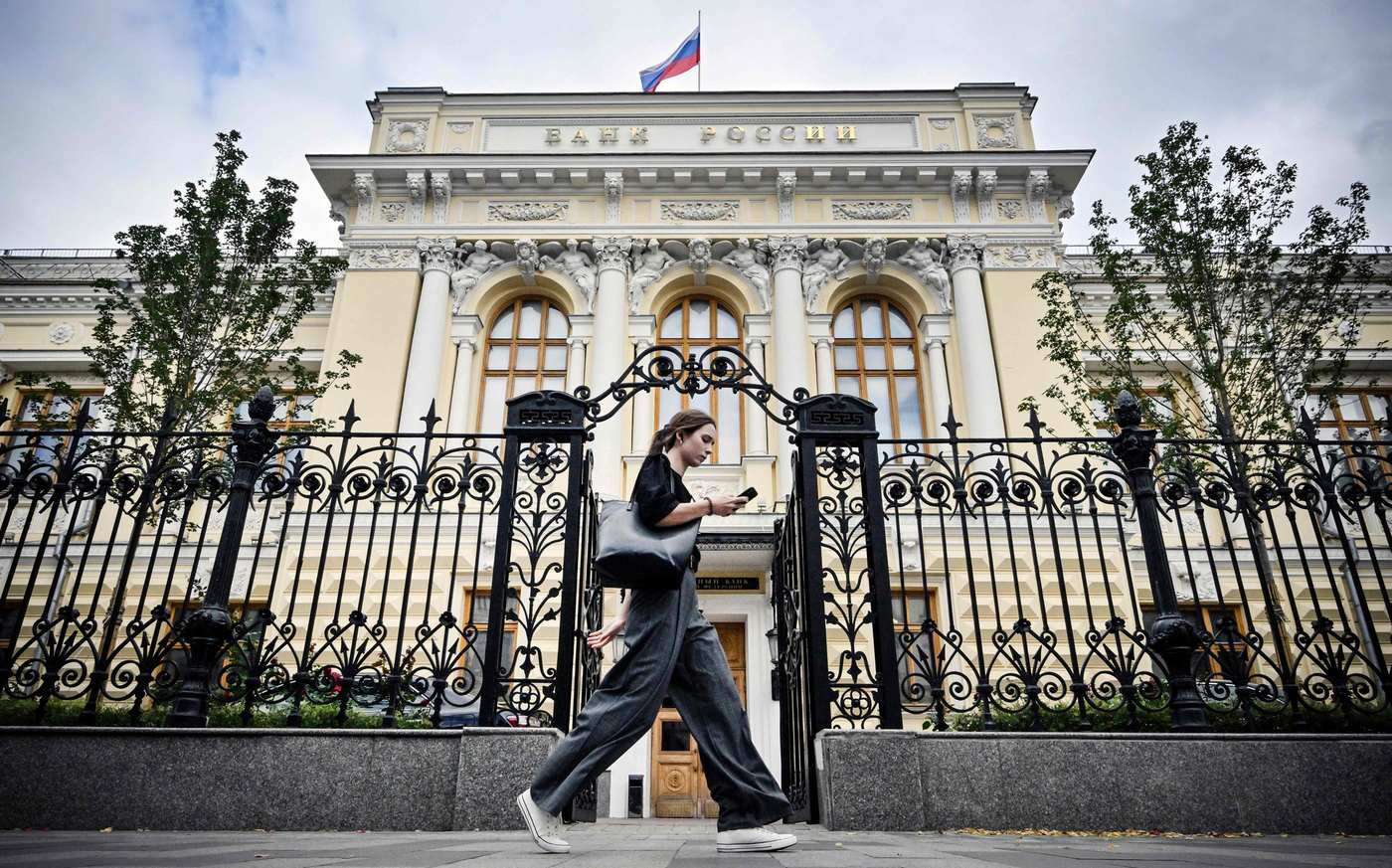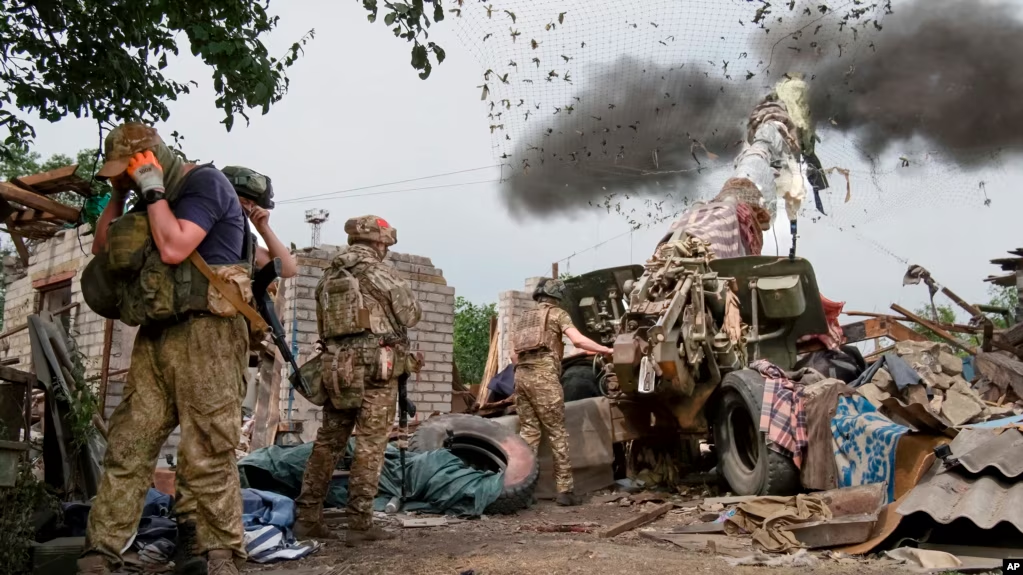Trump flips on Ukraine weapons cutoff: “We have to help them”

US President Donald Trump has ordered the delivery of more weapons to Kyiv, days after the Department of Defense paused military shipments to Ukraine amid the ongoing Russian invasion of the country. The Pentagon confirmed the new deliveries, stating they were directed by Trump to ensure Ukraine can defend itself amid intensifying Russian attacks.
“We’re going to send some more weapons — we have to,” Trump says
Speaking on 7 July 2025 at the White House during a dinner with Israeli Prime Minister Benjamin Netanyahu, Trump said the United States would resume arms shipments to Ukraine, according to multiple media reports.
“We’re going to send some more weapons. We have to. They have to be able to defend themselves. They’re getting hit very hard now,” Trump told reporters. “Defensive weapons, primarily, but they’re getting hit very, very hard. So many people are dying in that mess.”
Trump also expressed clear dissatisfaction with Russian President Vladimir Putin, stating,
“I’m disappointed, frankly, that President Putin hasn’t stopped. I’m not happy with President Putin at all.”
US President Trump: We're gonna to send some more weapons to Ukraine. We have to. They have to be able to defend themselves. pic.twitter.com/TiroEZwScW
— Status-6 (Military & Conflict News) (@Archer83Able) July 8, 2025
These remarks came after a phone call with Ukrainian President Volodymyr Zelenskyy on 4 July. According to Zelenskyy, the discussion covered Russian airstrikes and the broader front line, with the leaders agreeing to work together on strengthening Ukraine’s air defense.
“President Trump is very well-informed, and I thank him for his attention to Ukraine,” Zelenskyy said after the call.
Pentagon confirms shift: weapons to help stop the killing
Soon after Trump’s public comments, the Department of Defense issued an official statement confirming resumed military support.
“At President Trump’s direction, the Department of Defense is sending additional defensive weapons to Ukraine to ensure the Ukrainians can defend themselves while we work to secure a lasting peace and ensure the killing stops,” said Chief Pentagon Spokesman Sean Parnell.
Parnell added that the framework for evaluating global military shipments “remains in effect and is integral to our America First defense priorities” — the same justification, used earlier by the Pentagon to justify the suspension of weapon supplies.
A brief but turbulent pause in support
Trump’s promised to send more weapons to Ukraine followed a short but controversial pause in arms shipments, which had sparked backlash in Washington and among European allies. The Pentagon’s pause, initiated around 30 June, halted deliveries of air defense munitions, Patriot missile interceptors, and precision-guided artillery rounds. US officials cited concerns about allegedly declining stockpiles.
Trump had defended the pause at first, stating the US needed “to make sure we have enough for ourselves.” The White House said the decision was based on a Department of Defense review and framed it as part of the administration’s policy to prioritize US interests.
According to the New York Times and Bloomberg, the halt was ordered after a review launched by US Defense Secretary Pete Hegseth, following US strikes on Iranian nuclear sites. Two people familiar with the matter told the NYT that someone at the Pentagon classified weapons into categories and suspended those intended for Ukraine. Reports indicated the White House was initially unaware of the Pentagon’s decision.
Russia escalates with record air assault on Ukraine
Trump’s shift came shortly after Russia launched the largest combined drone and missile barrage of the war so far, killing at least 11 civilians and injuring over 80, including seven children, as reported by AP. The attack targeted Kyiv and other Ukrainian cities and occurred hours after Trump spoke with Putin on 3 July. Trump later told reporters he made “no progress” with the Russian leader during the call.
Similar Russian air attacks, targeting residential area in the cities far behind the frontline, occur every day.

Trump satisfied with Zelensky call, suggests Patriot missiles still possible for Ukraine despite deliveries halt
Pause triggered alarm in Washington and Europe
The halt in aid led to concern that Ukraine’s defenses could be weakened at a critical moment. US lawmakers from both parties, including Republican Representatives Don Bacon and Michael McCaul and Democrat Marcy Kaptur, pushed for an investigation into how the decision was made.
According to NBC News, senior military officials assessed that continuing support to Ukraine would not reduce US stockpiles below critical readiness levels. Three officials said that the Pentagon’s Joint Staff concluded that delivering the paused munitions would not jeopardize US capabilities.
Mixed messaging and internal divisions
While the White House eventually confirmed the pause publicly through Deputy Press Secretary Anna Kelly, Trump had remained silent until after the Russian assault and his calls with Putin and Zelenskyy. As Atlantic Council analyst John E. Herbst noted, the policy reversal highlighted tensions between factions within the administration — with figures like Hegseth and others seen as more aligned with a “restrainer” view, skeptical of continued large-scale support to Ukraine.
Trump’s ultimate decision to resume aid aligned with the positions he had expressed at the June NATO Summit in The Hague, where he voiced support for helping Ukraine acquire more Patriot systems. Ukrainian officials said they had not received formal notice of a change in aid schedules but were tracking developments closely.
Trump administration’s Ukraine pause exposes internal divide
The Atlantic Council’s John E. Herbst says the Pentagon’s short-lived aid pause revealed deep policy splits within Trump’s team. He noted that “administration policy on Russia and Ukraine is put together with the input of people with vastly different worldviews,” citing “restrainers” like Defense Secretary Pete Hegseth and DNI Tulsi Gabbard.
Herbst suggested the pause was likely to end soon, though he warned that “restrainers are still in the game.” He contrasted the administration’s softer posture toward Russia with its assertive stance on Iran, describing it as part of a broader reluctance to challenge the Kremlin.
Looking forward
The resumption of shipments reestablishes a key supply line for Ukraine at a time of heightened Russian aggression. Though the list of weapons included in the resumed aid was not disclosed, Trump has also earlier suggested the US might sell additional Patriot missiles to Ukraine.
“They’re going to need something because they’re being hit pretty hard,” he said last week aboard Air Force One.
Read the follow-up:
WSJ: Trump blames Pentagon, not himself, for Ukraine weapons pause

